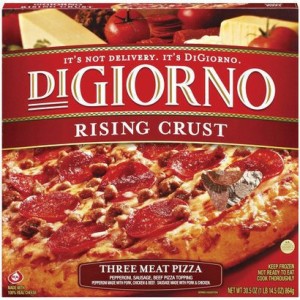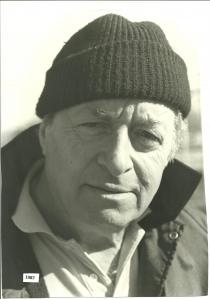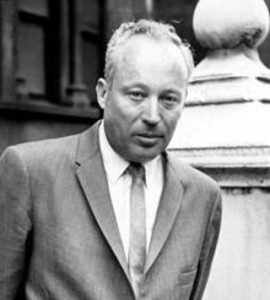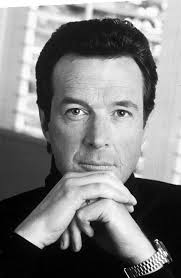by James Scott Bell
@jamesscottbell
While I am a firm believer in the adage that to be a writer it takes an iron butt, and also that a pro can’t afford to sit around waiting for the Muse, I do believe in inspiration. Just like a football team gets a locker-room speech, so the writer can use the occasional boost in motivation.
That’s why I like writing quotes. Over the years I’ve collected hundreds of them. I glance at them from time to time and, depending on my particular writing challenge of the moment, I usually find a quote that speaks to it.
Today, I thought I’d share a few of them with you, along with some annotations.
If you boldly risk writing a novel that might be acclaimed as great, and fail, you could succeed in writing a book that is splendid. – Leonard Bishop
You get what you dare, baby, and if you want big, you dare big. – Leonard Bishop
Leonard Bishop was a novelist and author of one of the first craft books I ever purchased, Dare To Be a Great Writer. I still love that book and have it sticky-noted all over the place. Here, Bishop advocates the setting of high standards. I join him in saying, Go for it! Look at your own work and assess it according to what I call “The 7 Critical Success Factors of Fiction”—plot, structure, characters, scenes, dialogue, voice, and meaning—and determine to kick each of them up a notch in your writing.
One needs natural talent, much physical energy (which calls for a strict regimen of diet and exercise), and the resilience to bounce back after the most shattering disappointment and frustration. – L. Sprague de Camp
L. Sprague de Camp was a writer from the golden age of science fiction, the America of the 1930’s, and continued writing until his death in 2000 at the age of 92. He was the author of over 120 science fiction and fantasy novels, and several hundred short stories. The kind of writer I admire, one who worked hard at his craft and kept producing pages. Why? Because if he didn’t, he didn’t eat.
Let’s talk about talent. You do need some, but in my opinion it is the least important of the attributes for writerly success. It’s taking the talent you have to the highest level you can that counts.
So does bouncing back. The writing life has myriad ways to disappoint, frustrate, and even anger you. The trick is never to take any setback lying down. Get up and keep writing.
You have to evolve a permanent set of values to serve as motivation. – Leon Uris
Leon Uris’s books have sold over 150 million copies worldwide and have been translated
into 29 languages. There has to be a reason for this.
Values may be the heart of it. Uris was a Marine in World War II, and thus his novels have a certain fundamental nobility. Uris’s protagonists are full of passion for justice, and often involved in wider battles for freedom. Battle Cry, Exodus, QB VII, and Trinity each reached the top spot on the New York Times bestseller list.
What are you most passionate beliefs? Transfer that fire to your protagonist. What would he die for? If nothing, he’s probably not that interesting.
At every significant juncture in a story, consciously look at the situation from the viewpoint of every character involved – and let each of them make the best move they can from his or her own point of view. – Stanley Schmidt
Stanley Schmidt is the science-fiction author of such books as Newton and the Quasi-Apple (1970), Lifeboat Earth (1978) and Tweedlioop (1986). From 1978 to 2012 he was the editor of Analog, the noted SF magazine. Schmidt knows story.
Here he emphasizes a key rule of the craft, that of “maximum capacity.” Every character should be in the story for a reason, and the reason must matter greatly to that character (see the previous entry). When shove comes to slap, the characters all should be thinking how they can get their licks in. Don’t ever let the opponents of the Lead operate half-heartedly, lest the readers feel cheated. Don’t ever let the allies of the Lead just “hang around.”
Take a look at your WIP and assess the drive of each major character. Now turn those into overdrive.
Keep working. Don’t wait for inspiration. Work inspires inspiration. Keep working. – Michael Crichton
The best cure for not writing is writing. The best antidote for the writing blues is writing.
The best thing to do if you can’t face the blank page or screen is . . . write!
But what about the writers block deal we’ve been talking about here at TKZ? Is that real? Only if you don’t attack it by typing or moving a pen.
You don’t have to write on the project that’s stalling you. Work on something else. Have several projects going.
Isaac Asimov had a number of typewriters around his apartment, and when he was stalled on one project he’d get up, stretch, and walk to another typewriter, with a page in it, on some completely different subject, and he’d type some more.
So if you stall on your WIP, work on something else. Anything. Write your obituary. Truly. How do you want to be remembered? This is a great way to focus the mind and get your life in order.
Journal. Talk to yourself on paper or screen.
 Heck, you can even be creative with your grocery list. Make it a thing of beauty. Turn it into a series of mini-essays, on the questionable identity of beets, and the pleasures of DiGiorno Pizza.
Heck, you can even be creative with your grocery list. Make it a thing of beauty. Turn it into a series of mini-essays, on the questionable identity of beets, and the pleasures of DiGiorno Pizza.
Once the brain starts cooking with words you’ll be back in the flow in no time.
Do you have a favorite writing quote? Let’s hear it!



